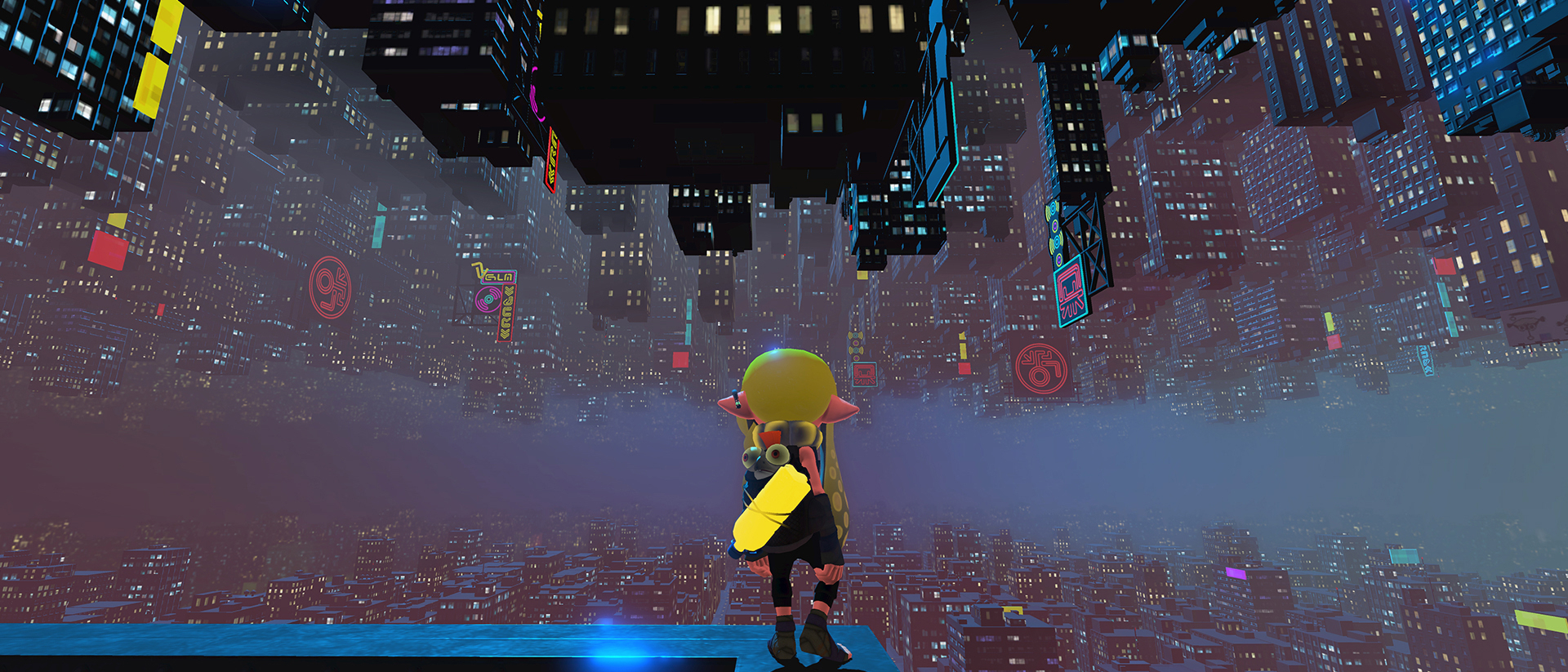TechRadar Verdict
After a glorified expansion in the form of Splatoon 2, this is the sequel the series desperately needed. Splatoon 3 is the finest entry to date, offering an excellent multiplayer suite, a vastly improved campaign and some much-needed quality-of-life upgrades.
Pros
- +
Multiplayer splatting at its best
- +
Stellar single-player campaign
- +
Wonderful soundtrack
Cons
- -
No new multiplayer modes
- -
Hub is a tad confusing at first
- -
Locker feature is initially elusive
Why you can trust TechRadar
Time played: 16 hours
Platform: Nintendo Switch
Splatoon 2 was – for all intents and purposes – no more than a port of the original Wii U squid shooter to the Nintendo Switch. Its single-player campaign was a marginal improvement over the first game’s glorified tutorial, but its multiplayer suite still didn’t allow you to team up with friends outside of ranked play. And while the newly added Salmon Run was buckets of fun, it was kneecapped by arbitrary time gating.
Until the release of its excellent Octo Expansion campaign, Splatoon 2 felt more like a cautious step forward where a real Squid Surge was needed. Splatoon 3, by comparison, is the ‘eel’ deal.
Nintendo has clearly focused on ironing out all the issues fans have had since the 2015 original. While the game’s main draw – its competitive multiplayer – remains largely familiar, it’s benefited from all sorts of quality-of-life upgrades. Improvements so welcome they caused me to audibly shout – mainly variations of, “oh nice, they finally changed that”.
The changes are even more apparent in Splatoon 3’s single-player campaign. In the first two games, the solo component felt like an afterthought, presenting a series of obstacle course-like trials to get you used to the game. That element still exists in Splatoon 3, but it’s been bolstered by a greater variety of challenges and a detailed hub world littered with collectibles.
Splatoon’s very own horde mode, Salmon Run, also makes a return. And while it’s not too different from its first iteration, a number of key differences make it so much better. More Boss Salmonids have been added, leaving each run that much less predictable. And best of all, you’re now able to queue for the mode at any time, as opposed to being locked out at specific times, like in Splatoon 2.
In short, Splatoon 3 is the shot in the arm the series needed. And with post-launch support coming throughout 2023 and beyond, I expect squids and kids alike will be kept happy for the foreseeable future.
Splatoon 3 price and release date
- What is it? Nintendo’s latest squid-based multiplayer splat ‘em up
- Release date: September 9, 2022
- Price: $59.99 / £49.99 / AU$79.95
- What can I play it on? Nintendo Switch
Surf and turf
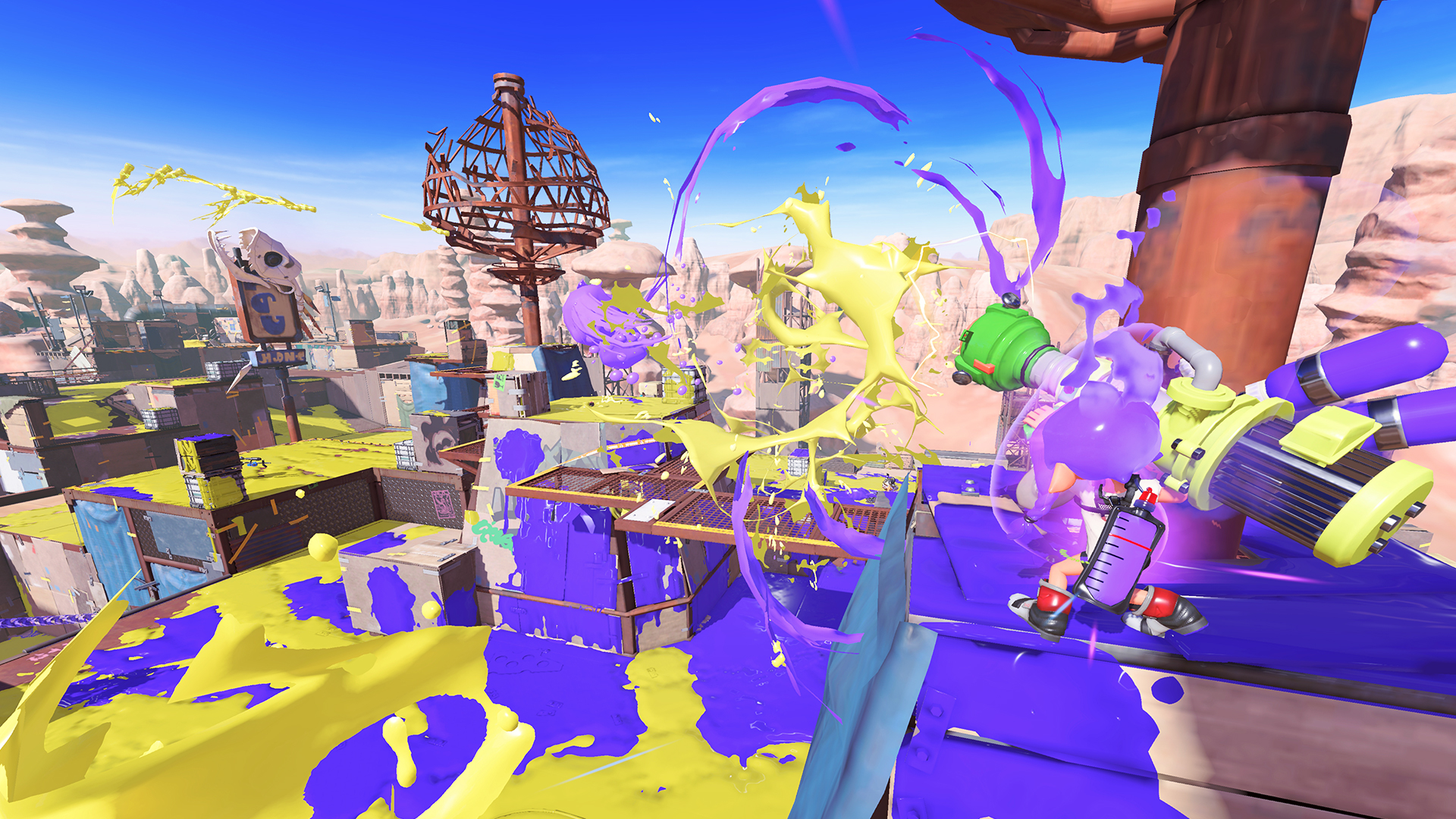
The delicious, filling filet at the center of Splatoon remains its quick and addictive Turf War multiplayer battles. Two teams have three minutes to ink up as much of the map’s surface as possible. It’s a simple yet ever-chaotic mode, especially as you attempt to learn the ins and outs of the map and your opponents’ weapon loadouts over the course of 180 hot seconds.
Thankfully, you can now queue with friends, on the same team, in non-ranked Regular Battles. It sounds like such a basic thing to get right, because it is, but it’s still something Splatoon 3’s predecessors failed to offer. Now that this has been remedied, playing Splatoon socially has never been easier.
It rankles, though, that Splatoon 3’s ranked modes (now known as Anarchy Battles) are still locked behind progression. Specifically, you’ll need to reach level 10 (or carry over a Splatoon 2 save file) in order to access them.
That means that the bulk of the game’s more creative multiplayer modes – including Rainmaker and Clam Blitz – won’t be immediately accessible for the vast majority of players. And on top of that, there are no new modes (at least at launch) to really spice up the formula. If you’re a Splatoon veteran, you know exactly what you’re getting.
Quality seafood
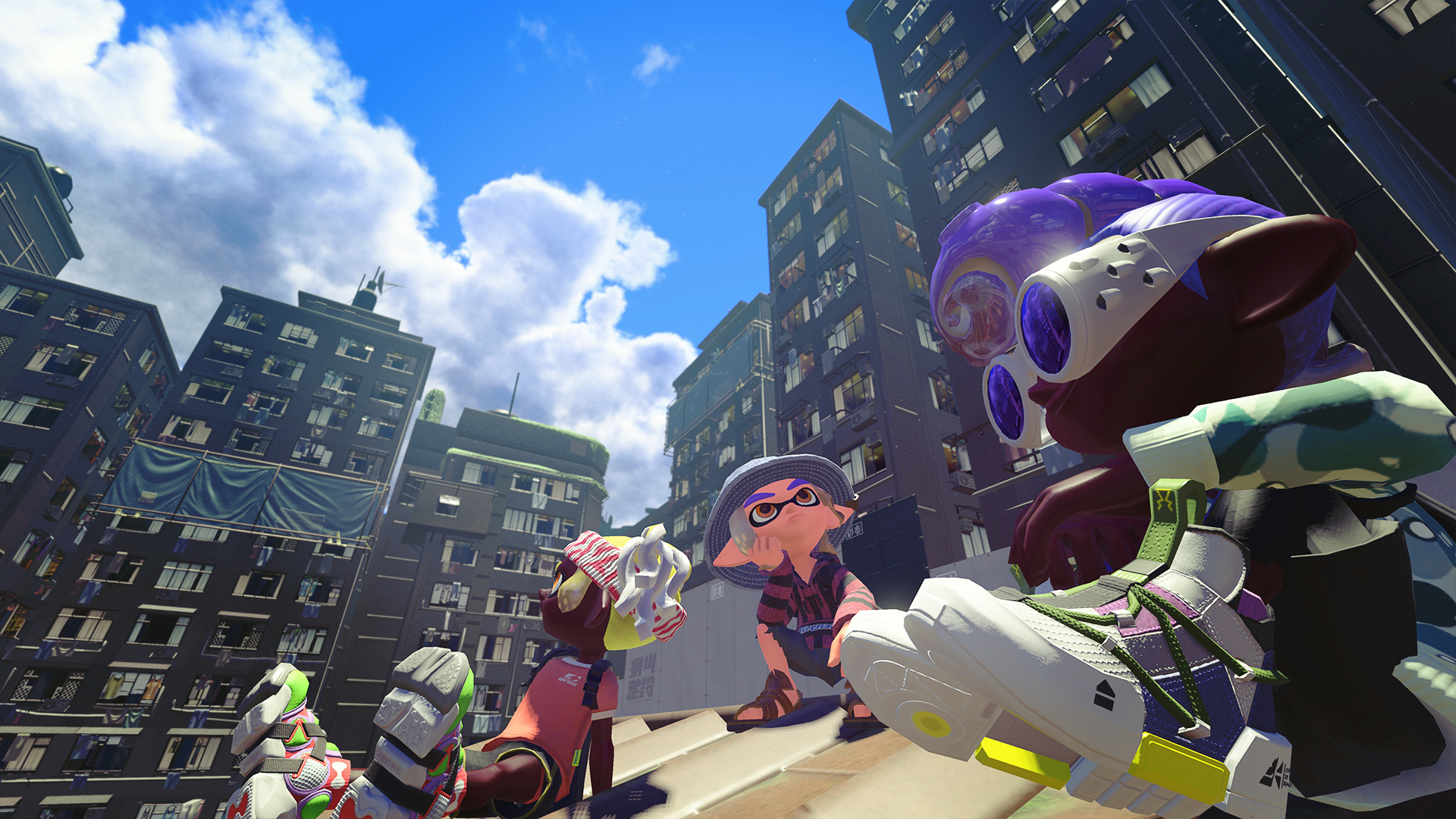
Splatoon 3’s hub, however, is an excellent addition. It’s slightly bigger than the hubs of Splatoon 1 and 2, and clearly heavily inspired by Japanese urban districts. It’s really fun to explore Splatsville’s open shopping district and its winding back alleys.
And while it’s a bit confusing to navigate when you’re first getting your bearings, I’m sure it’ll become even more fun to saunter around as real players’ avatars start populating the space.
A brand new locker room allows you to customize your very own space with a huge variety of collectibles, including posters, figures, weapons, clothing and props. This part of the lobby was a little tricky to spot at first, as it’s initially obscured by opaque glass. But once I did find it, I spent more time than I care to admit tricking out my locker with all manner of fishy miscellany.
Online connection quality seems to be much stronger overall – most likely thanks to Nintendo’s new netcode that’s been doing the rounds in other games like Monster Hunter Rise.
It’s a far cry from the days of Splatoon 2, where disconnections and dropouts were a frustratingly frequent occurrence. In my time playing Splatoon 3 online, I haven’t experienced a single instance of this. Something I hope will be the norm when the servers fill up on launch day.
Slammin' salmonids
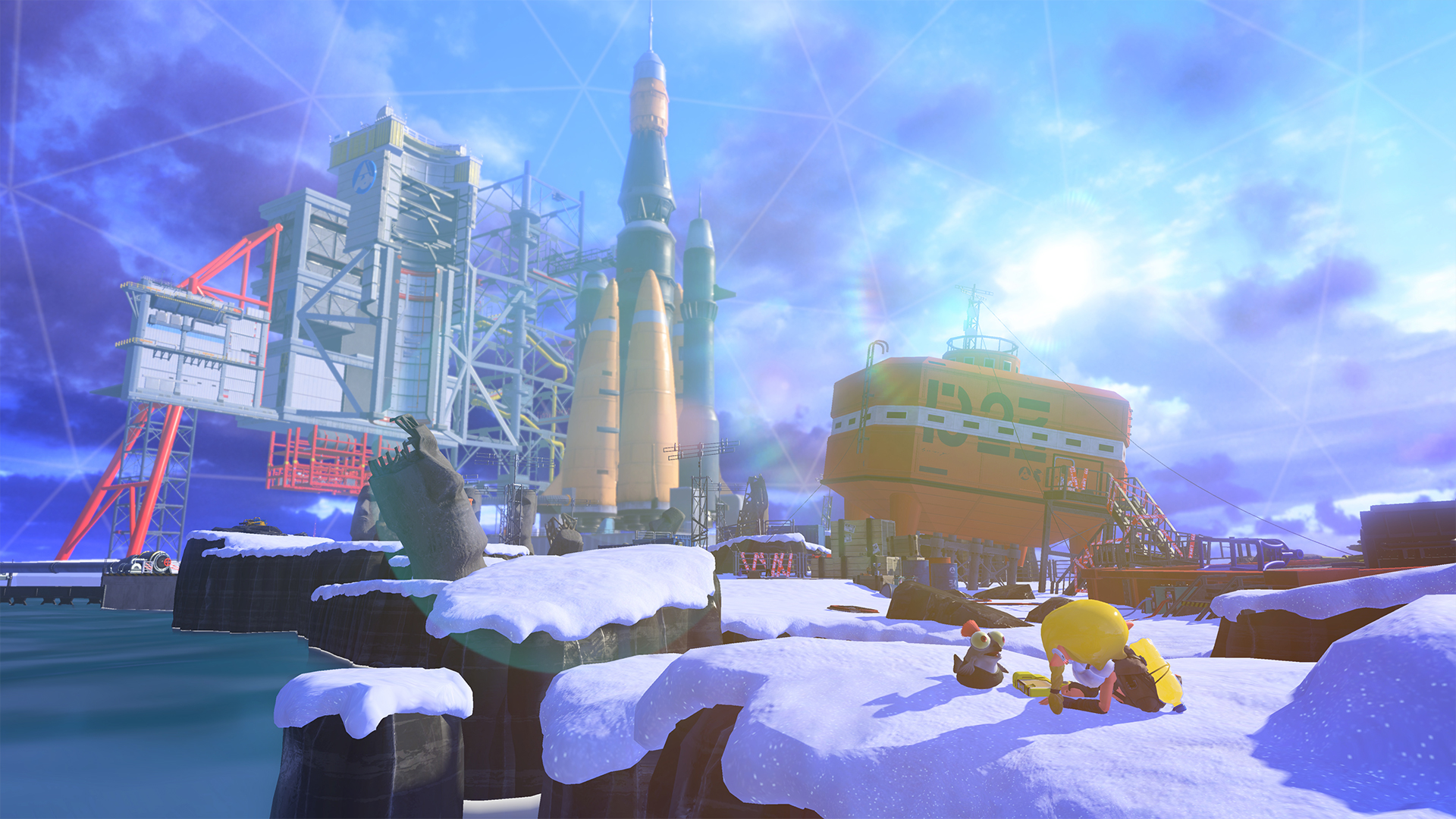
Until now, Splatoon’s campaigns have always felt like a missed opportunity. Sure, they’re effective at familiarizing you with a number of weapons and mechanics. But that’s all they were: tutorials in disguise.
The opening set of levels in Splatoon 3’s campaign ring similarly. But my fears were laid to rest as the campaign soon expanded and became, in a word, brilliant. There's a huge range of missions this time, ranging from obstacle courses strewn with enemies, to Octo Expansion-esque micro challenges.
Splatoon 3’s campaign takes place in Alterna, a now-defunct research base once occupied by the last remnants of humanity. It has its own hub, a much more open world that’s littered with missions and collectibles both.
There's a huge range of missions this time, ranging from obstacle courses strewn with enemies, to Octo Expansion-esque micro challenges
You’ll work with your Salmonid pal Smallfry to earn Power Eggs in each mission to slowly but surely chip away at the Fuzz. This hairy organic matter initially blocks off much of the hub. But once it’s all clear, you’ll have free rein to explore each area and advance to new ones as the story progresses.
The campaign doesn’t overstay its welcome, taking around eight hours to beat for 100% completion. And as a result, I’d highly recommend you play through it even if the multiplayer is what you’re most excited about. Alterna-tely, if you’re big into the bizarre, occasionally dark lore of the Splatoon universe, the story is definitely a must-play.
Staying fresh
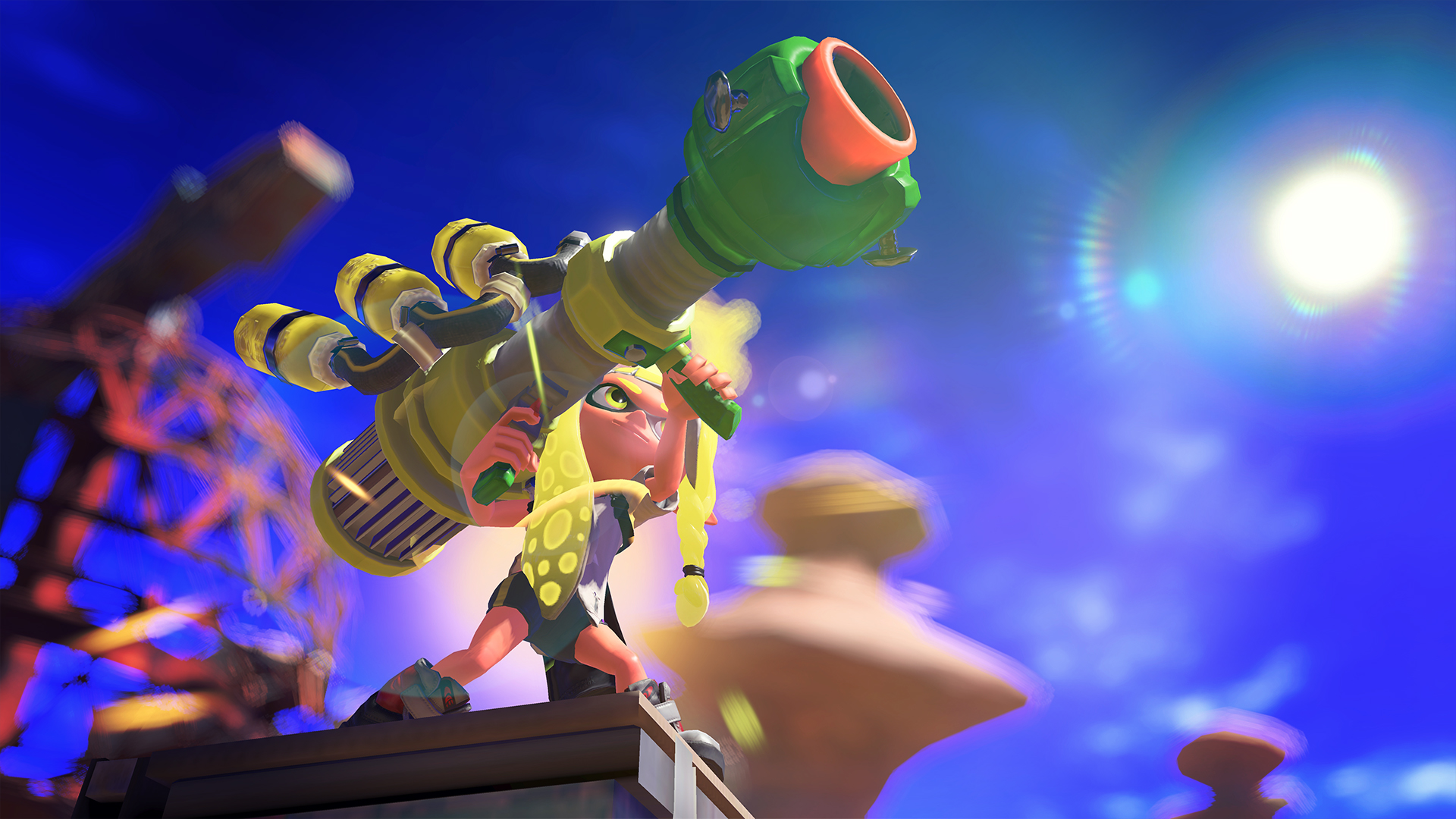
The fundamentals of an innovative, excellent multiplayer shooter have always been there in Splatoon. The series has just traditionally missed the mark on making its magic as accessible as it should be.
However, Splatoon 3’s myriad quality-of-life upgrades, brought together with its refreshing solo campaign, new suite of collectibles and improved online connectivity – not to mention its wonderfully wild punk rock, EDM and industrial soundtrack – make it the game that Splatoon 2 should’ve been.
If this is your first time engaging in the turf wars, or if you're a fully seasoned squid, know that you're getting the series at its absolute peak with Splatoon 3. The multiplayer has never been this seamless, nor its single-player offerings more robust, than right here.

Rhys is TRG's Hardware Editor, and has been part of the TechRadar team for more than two years. Particularly passionate about high-quality third-party controllers and headsets, as well as the latest and greatest in fight sticks and VR, Rhys strives to provide easy-to-read, informative coverage on gaming hardware of all kinds. As for the games themselves, Rhys is especially keen on fighting and racing games, as well as soulslikes and RPGs.
